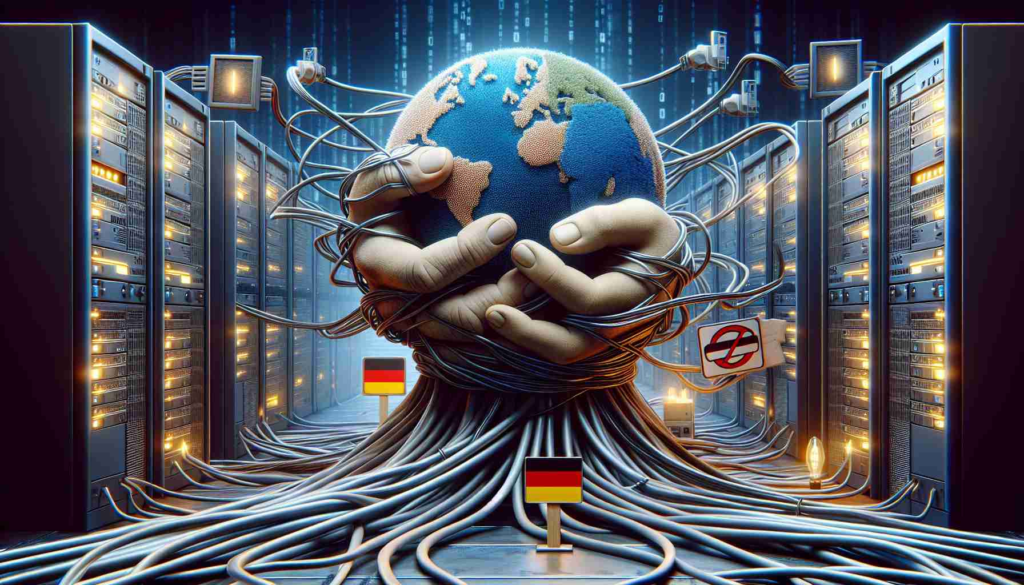
In an era where the digital landscape defines the global narrative, Germany stands as a sentinel at the crossroads of internet freedom and regulation. Our country's progress in navigating the complexities of online content censorship to ensure the protection of our youth, our strong stance against cyber threats, and our ambitious progress towards digital literacy and inclusion all reflect the complex balance facing modern society. It is reflected. In this exploration, we dive into an adventure that presents Germany not just as a country, but as a case study in the paradox of digital governance.
Germany: Law that strikes a balance between censorship and protection
If you delve into German internet law, you'll come across the Jugendmedienschutz-Staatsvertrag (Convention for the Protection of Youth Media), a landmark regulation aimed at protecting minors from the unpleasant aspects of the digital world. Enacted in 2002 and revised in 2009, the statute clarifies the online world that minors can navigate and that is deemed pornographic, violent, racist, or blatantly offensive. Build walls against your content.
The German Criminal Code further complements this set of regulations, criminalizing the distribution of content that damages the reputation of others, discriminates or incites hatred against particular groups. The Federal Attorney's Office remains vigilant and enforces these laws in cooperation with internet providers, who are required to report content that may violate legal standards. If such violations are confirmed, the content may be blocked or removed. In exceptional cases, a website may be completely banned if it is considered a threat to national security or a violator of copyright law (Bundesgesetzblatt).
But don't get me wrong. The German story is not a story of oppression, but of identification. Freedom of speech and protection of privacy are posted as signs. Only content that goes beyond the bounds of decency is subject to regulation. Germany's censorship environment may seem strict, but it begs the most poignant question: where do we draw the line?
Defending the digital frontier: Germany's cybersecurity strategy
In response to the rapid increase in cyber threats, the German Federal Ministry of the Interior, Buildings and Communities rolled out a new cybersecurity strategy in 2020 that complies with European Union (EU) cybersecurity law. With the aim of protecting its citizens in cyberspace and asserting its digital sovereignty, Germany is strengthening its defenses and investing in research to predict and neutralize new threats.
Central to these efforts is the establishment of a National Cybersecurity Advisory Council to streamline the country's defense mechanisms. Additionally, partnerships with private industry have led to federally funded initiatives such as the German Cybersecurity Alliance. This industry-led consortium is at the forefront of developing cyber defense solutions, setting international standards, and promoting best practices among businesses and consumers.
Education and outreach are paramount. Germany is funding programs to raise public awareness of cybersecurity risks and pressuring higher education institutions to incorporate cyber defense into their curricula. Proposals are underway to create a National Cybersecurity Agency, a bulwark tasked with establishing and maintaining cybersecurity standards.
Fostering digital literacy and tackling inequality: an inclusive vision for Germany
Germany has pledged 2.2 million euros to ensure that all citizens have access to digital infrastructure and services, and is poised to move step by step towards its vision of a digitally inclusive society. Initiatives such as the Digital Education Plan and the Digital Citizenship Fund are emblematic of this commitment to eliminating heterogeneous access to digital resources that correlates with economic status and geographic location.
To close the digital literacy gap, the government is funding programs that strengthen basic computer skills and internet navigation, recognizing the need to increase the accessibility of digital technologies for individuals with disabilities. These efforts are amplified by investments in educational technology in schools to create a digitally proficient future generation.
Assessing the impact of the digital divide in Germany
Despite decisive moves towards inclusivity, the digital divide remains a growing concern, highlighting the disparity between connected and isolated people, especially in rural areas. Research suggests that this divide not only impacts equal access to technology, but also economic opportunity and social inclusion.
In conclusion, Germany's digital paradigm tells a story of balance: a fine line between protecting society's most vulnerable, defending against virtual danger, and weaving an inclusive digital tapestry. I am presenting it. The international community is watching as Germany navigates the digital frontier in measured and determined steps, perhaps gleaning insights into a code of conduct.

Marcin Frąckiewicz is a well-known author and blogger specializing in satellite communications and artificial intelligence. His insightful articles delve into the intricacies of these fields, providing readers with a deep understanding of complex technical concepts. His work is known for its clarity and thoroughness.


